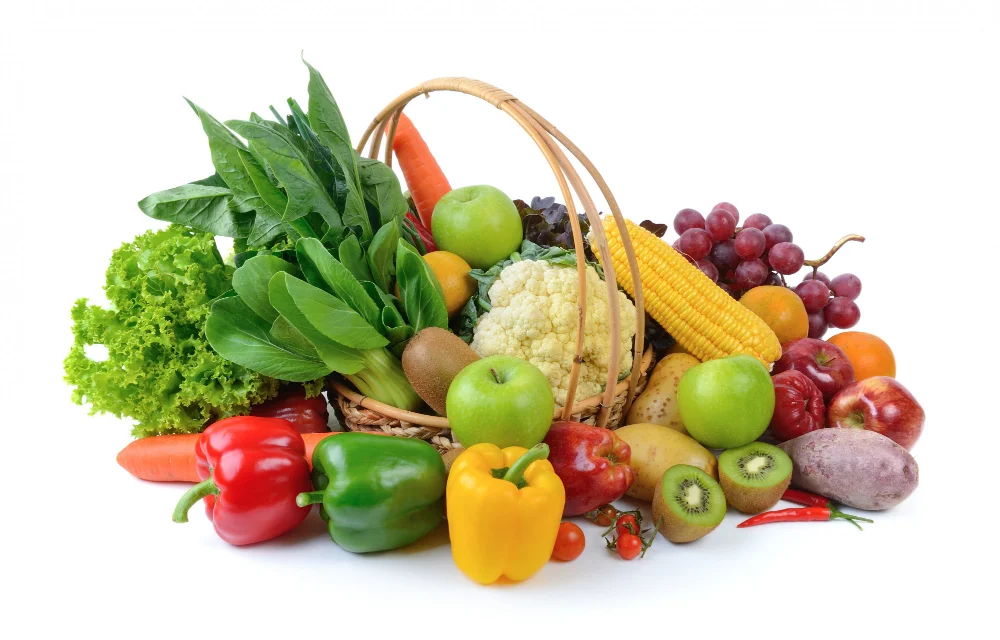Anal fissures can be extremely painful and uncomfortable. They are small tears or cuts in the lining of the anus, often caused by passing hard stools or chronic constipation. While medications and proper hygiene help in healing, diet plays a major role in preventing recurrence and speeding up recovery. In this detailed guide, we’ll explore the best anal fissure diet, what foods to include for smooth bowel movements, and the foods to avoid with anal fissure to prevent irritation or delayed healing.
Understanding Anal Fissure and Its Link with Diet
Before discussing the anal fissure diet, it’s essential to understand why food matters. The main reason for anal fissures is straining during bowel movements due to hard or dry stools. A low-fiber diet, dehydration, and irregular eating habits can worsen the condition.
The right anal fissure food plan helps by:
- Softening stools naturally
- Preventing constipation
- Reducing inflammation and irritation
- Supporting faster tissue healing
A well-planned anal fissure diet focuses on fiber-rich foods, hydration, and gentle digestion.
1. Fiber: The Foundation of an Anal Fissure Diet
The most important part of any anal fissure diet is dietary fiber. Fiber adds bulk to stools and keeps them soft, preventing straining during defecation.
Best Fiber-Rich Foods for Anal Fissure
- Whole grains: Brown rice, oats, barley, and whole wheat bread improve digestion and bowel regularity.
- Legumes: Lentils, chickpeas, black beans, and green grams are excellent anal fissure food options due to their soluble fiber content.
- Fruits: Apples, pears, guava (with seeds removed if it irritates), and papaya help soften stools.
- Vegetables: Carrots, spinach, bottle gourd, and pumpkin are soothing for the intestines.
- Seeds: Flaxseeds and chia seeds are rich in soluble fiber and omega-3 fatty acids that reduce inflammation.
Tip: Gradually increase fiber intake to prevent bloating or gas.
2. Hydration – The Unsung Hero of Healing
Water is a key element of a successful anal fissure diet. Without adequate hydration, even fiber cannot perform its function properly.
How Much Water to Drink
- Drink 8–10 glasses of water daily.
- Warm water early in the morning helps activate bowel movement.
- Avoid caffeinated beverages that dehydrate the body.
You can also include buttermilk, coconut water, or clear soups to maintain hydration levels naturally.
3. Healthy Fats for Smooth Digestion
Not all fats are harmful. In fact, healthy fats can lubricate the intestinal tract, making stool passage easier, an important part of an effective anal fissure diet.
Healthy Fat Sources
- Olive oil: Promotes smooth bowel movement.
- Ghee: A small amount daily acts as a natural stool softener.
- Avocado: Contains healthy monounsaturated fats and fiber.
- Nuts: Almonds and walnuts are good but should be soaked overnight for easier digestion.
4. Probiotics: Healing Through Gut Health
Probiotics are beneficial bacteria that improve digestion and prevent constipation, making them an essential anal fissure food group.
Best Probiotic-Rich Foods
- Curd or yogurt: Soothes the digestive system and maintains gut flora.
- Buttermilk: Light and hydrating, helps in stool softening.
- Fermented foods: Idli, dosa, and homemade pickles in moderation support healthy bowel function.
Regular consumption of probiotics ensures smoother digestion and reduces the risk of fissure recurrence.
5. Fruits That Help in Faster Healing
Including specific fruits in your anal fissure diet can accelerate recovery due to their fiber, vitamins, and water content.
Recommended Fruits
- Papaya: Contains papain, an enzyme that aids digestion.
- Banana: Acts as a natural laxative and is gentle on the stomach.
- Apple (with skin): Rich in soluble fiber (pectin).
- Pears and prunes: Prevent constipation and soften stools.
- Watermelon: Hydrating and soothing for the gut.
Try to eat 2–3 servings of fruit daily to keep your digestive system active and healthy.
6. Vegetables That Soothe and Heal
Vegetables are crucial for an anal fissure diet as they supply vitamins, minerals, and antioxidants.
Best Vegetables for Anal Fissure
- Bottle gourd (lauki): Easy to digest and cools the body.
- Spinach: Prevents constipation and promotes cell repair.
- Pumpkin and carrots: Help reduce inflammation.
- Cabbage and beans: Provide fiber and aid stool passage.
Always prefer cooked vegetables over raw salads when you have an active fissure, as raw foods may sometimes irritate the gut.
7. Whole Grains for Gentle Bowel Movements
Choosing whole grains instead of refined products makes a big difference in your anal fissure diet.
Recommended Whole Grains
- Brown rice over white rice
- Whole wheat chapati instead of maida-based foods
- Oats porridge for breakfast
- Millets like ragi and bajra for added nutrition
Whole grains regulate bowel movements naturally and maintain long-term colon health.
8. Foods to Avoid with Anal Fissure
Avoiding the wrong foods is as important as eating the right ones. Certain foods can trigger constipation, inflammation, or irritation of the anal area.
List of Foods to Avoid with Anal Fissure
- Spicy foods: Red chili, hot pickles, and masalas worsen burning and pain.
- Processed foods: Instant noodles, chips, bakery items cause hard stools.
- Caffeinated drinks: Coffee and cola dehydrate and make stools dry.
- Alcohol: Slows digestion and reduces body hydration.
- Non-vegetarian spicy dishes: Hard to digest and may irritate the anal lining.
- Refined sugar and flour: Reduce fiber intake and increase constipation risk.
When following an anal fissure diet, it’s best to eat freshly cooked, mild, and easily digestible meals.
9. Anal Fissure Diet Plan (Indian)
Here’s an easy-to-follow daily meal plan suitable for Indian diets:
Morning (7 AM)
- A glass of warm water with lemon
- Soaked flaxseeds or 2 soaked figs
Breakfast (8–9 AM)
- Oats or broken wheat porridge with fruits
- 1 glass of buttermilk
Mid-Morning Snack (11 AM)
- Papaya or banana
Lunch (1–2 PM)
- Brown rice or millet roti
- Moong dal or vegetable curry (like bottle gourd or pumpkin)
- Salad (boiled beetroot or cucumber)
- Buttermilk
Evening Snack (5 PM)
- Herbal tea or coconut water
- Handful of soaked almonds
Dinner (7–8 PM)
- Khichdi with ghee or vegetable soup
- 1 cup curd
Before Bed
- A glass of warm milk with a teaspoon of ghee
This plan keeps digestion smooth and helps repair the fissure naturally.
10. Lifestyle Tips Along with Anal Fissure Diet
Diet alone isn’t enough, lifestyle plays a supporting role in healing.
- Don’t ignore the urge to pass stool. Holding it can worsen constipation.
- Avoid sitting for long periods. Use a cushion if needed.
- Exercise regularly. A 20-minute walk helps with bowel activity.
- Maintain anal hygiene. Clean gently with warm water after bowel movements.
- Use a squatting position or a footstool while defecating for easier stool passage.
Combining these habits with a proper anal fissure diet accelerates healing and prevents recurrence.
11. Common Mistakes in Anal Fissure Diet
Even when trying to eat healthily, people often make errors that delay healing.
Avoid These Mistakes:
- Overeating fiber suddenly can cause bloating or cramps.
- Drinking less water despite eating more fiber.
- Skipping meals which can slow digestion.
- Consuming too many raw vegetables instead of lightly cooked ones.
Balance is the key to an effective anal fissure diet.
12. Healing Timeline and Expectations
If you follow the correct anal fissure food plan consistently, mild fissures can heal within 1–2 weeks. Chronic fissures might take longer but improve significantly with proper diet and care.
Remember, consistency is vital, skipping your anal fissure diet for even a few days can bring back constipation and pain.
13. When to Seek Medical Help
Even with a perfect anal fissure diet, consult a doctor if:
- Pain lasts more than 2 weeks
- There is bleeding after every bowel movement
- You experience severe spasms or discomfort
A physician may recommend ointments, stool softeners, or minor procedures if dietary measures alone are insufficient.
Key Takeaways: Anal Fissure Diet Summary
| Category | Recommended Foods | Foods to Avoid |
| Fiber | Oats, lentils, fruits, vegetables | Refined flour, processed snacks |
| Hydration | Water, buttermilk, soups | Coffee, cola, alcohol |
| Healthy Fats | Olive oil, ghee, avocado | Deep-fried foods |
| Probiotics | Yogurt, curd, fermented foods | Sugary desserts |
| Overall Tip | Eat light, regular meals | Avoid spicy and oily items |
Conclusion
Following an anal fissure diet is one of the most effective and natural ways to heal faster and prevent recurrence. Focus on fiber-rich foods, adequate hydration and avoiding spicy or processed items. Remember, what you eat directly affects your bowel movements and recovery.
By choosing the right anal fissure food and avoiding harmful ones, you can not only ease pain and bleeding but also support long-term digestive wellness.
Frequently Asked Questions
1. What foods help heal an anal fissure fast?
Foods that are rich in fiber and easy to digest are the best for healing an anal fissure. Include fruits like papaya, banana, and pear, along with vegetables such as bottle gourd, pumpkin, and spinach. Whole grains, lentils, and plenty of water also form a vital part of an effective anal fissure diet.
2. What are the foods to avoid with anal fissure?
Avoid spicy, oily, and processed foods as they can irritate the anal area and cause constipation. Common foods to avoid with anal fissure include red chilies, pickles, fried snacks, refined flour products, alcohol, and caffeine. These can delay healing and worsen symptoms.
3. Can I eat rice if I have an anal fissure?
Yes, you can eat rice if it’s brown rice or parboiled rice, as these contain more fiber and aid digestion. Avoid white rice frequently since it can lead to harder stools. Combining rice with vegetables or dal makes it a balanced anal fissure food option.
4. How much water should I drink daily for anal fissure recovery?
To support your anal fissure diet, drink at least 8 to 10 glasses of water every day. Proper hydration keeps stools soft and prevents straining during bowel movements. You can also include buttermilk, soups, or coconut water for added hydration.
5. Can an anal fissure heal with diet alone?
Yes, mild fissures often heal with a proper anal fissure diet, hydration, and good hygiene. However, chronic fissures might need medical treatment alongside dietary care. Eating fiber-rich foods, avoiding irritants, and staying consistent with your anal fissure food plan can speed up the healing process.




